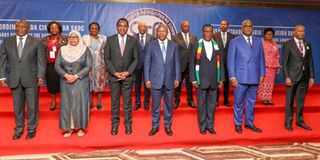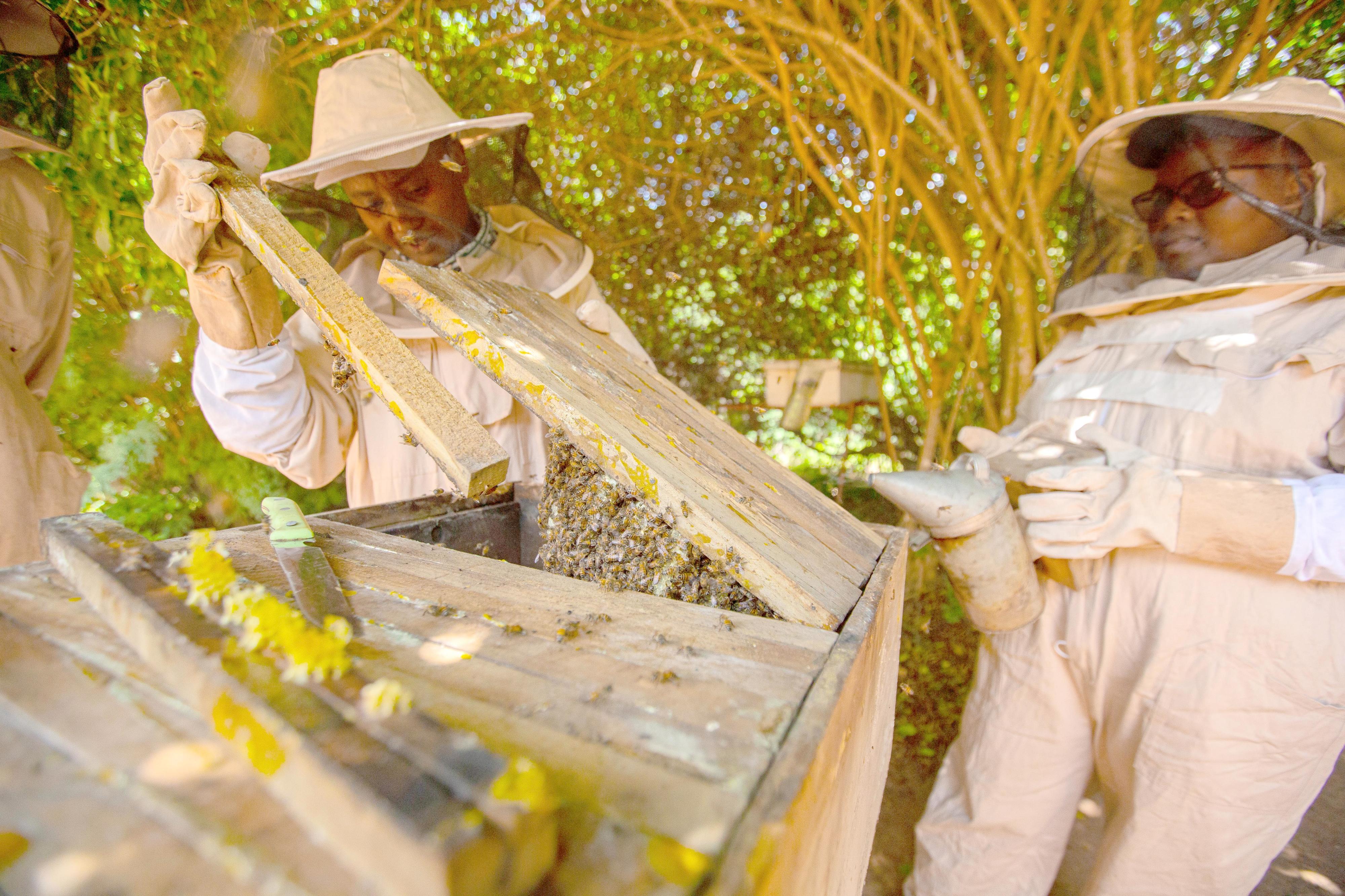Sadc calls emergency meeting over Mozambique post-election chaos

Southern Africa Development Cooperation (Sadc) member states’ leaders pose for a picture after a meeting in Luanda, Angola on Novermber 4, 2023. PHOTO | COURTESY
What you need to know:
- The opposition, which backed independent presidential candidate Venancio Mondlane, who came second to Frelimo’s Daniel Chapo, rejected the outcome, claiming widespread rigging.
The Southern African Development Community (Sadc) has called for an extraordinary summit to address the deepening post-election crisis in Mozambique, as deadly protests continue to spread across the country.
Rights groups say at least 18 people have been killed by security forces since protests erupted after the disputed October 9 election, which was won by the ruling Front for the Liberation of Mozambique (Frelimo).
The opposition, which backed independent presidential candidate Venancio Mondlane, who came second to Frelimo’s Daniel Chapo, rejected the outcome, claiming widespread rigging.
Mr Chapo will replace President Filipe Nyusi, who is stepping down after serving two terms.
Defence minister Cristovao Chume warned on Tuesday that the army would be deployed to quell the protests if they did not stop.
Zimbabwe, which chairs Sadc, said the regional leaders would meet in Harare between November 16 and 20 “to address issues of regional significance”.
“(The) summit is expected to be briefed on political events in the region, including the recent elections in Mozambique and Botswana and upcoming polls in Namibia,” Information minister Janfran Muswere told journalists in Harare.
The instability in Mozambique is a huge threat to the economies of neighbouring landlocked countries such as Zimbabwe, Zambia, Malawi and the Democratic Republic of Congo, which rely on the country’s ports for imports and exports.
There were also reports that the main port of entry between Mozambique and South Africa had been forced to close because of to the violence.
Mr Chume’s warning about the deployment of the army came ahead of a major protest on Thursday, which the opposition has dubbed “the day of Mozambique’s freedom.”
“Violent demonstrations are sowing hatred between brothers, destroying infrastructure and showing how divided we are,” he told journalists in Maputo.
“There is intention to change the democratically established power. If the escalation of violence continues, the armed forces will have to protect the interests of the people.”
Several election observers, including the European Union, said the polls were marred by serious flaws with the electoral body accused of manipulation to keep Frelimo in power.
Zimbabwean President Emmerson Mnangagwa caused a stir when he congratulated Frelimo before the official results were announced.
He will chair the regional body’s extraordinary meeting that is expected to find a lasting solution to the crisis in Mozambique.
The preliminary report of the Sadc observer mission appeared to give Mozambique’s electoral processes the thumbs up, prompting scathing criticism from the opposition and the media.
Questions have also been raised about the credibility of the head of the mission, former Zanzibar President Amani Abeid Karume. Mr Karume’s tenure in Zanzibar was marred by allegations of electoral fraud and violence.
Sadc Executive Secretary Elias Magosi said the bloc “does not have a carrot-and-stick approach” when dealing with member States that fail to adhere to its guidelines and principles for free and fair elections.
Frelimo has been in power in Mozambique since independence from Portugal in 1975.
Sadc also faced criticism after it endorsed Zimbabwe’s 2023 elections despite concerns raised by its observer missions that the polls did not meet the regional body’s standards.
Botswana held its elections last month where the Botswana Democratic Party led by Mokgweetsi Masisi lost power for the first time since 1966.
Former opposition leader Duma Boko of the Umbrella for Democratic Change will be inaugurated as the new leader on Friday.
Unlike Mozambique, Botswana has witnessed a smooth transfer of power.
Namibia will be the next country in the region to hold major elections on November 27.
The ruling Swapo party is seeking to avoid defeat for the first time since independence in 1990 and will field female candidate Netumbo Nandi-Ndaitwah, following the death of President Hage Gaingob earlier this year.




